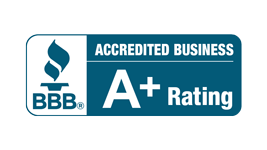Cleveland Bankruptcy Survival Guide: Your Comprehensive Guide to Financial Recovery
Cleveland is known for its unpredictable financial fluctuations. With rising debt and economic uncertainty, you may find yourself struggling with financial challenges. In fact, Ohio had three cities ranked in the bottom ten for paying off household debt, with Cleveland ranking a dismal 181st out of 182 cities. [1]
If you’re facing mounting debt, you’re not alone. Cleveland residents need a clear and actionable roadmap to face the challenges of bankruptcy and achieve lasting financial recovery.
Understanding Bankruptcy in Cleveland
Filing bankruptcy in Cleveland allows you to tackle excessive debt, giving you protection from creditors and an opportunity to start over.
Cleveland has its own set of regulations and processes that shape how bankruptcy is handled. Learning about bankruptcy can help you make well-informed choices to adeptly maneuver through the recovery process and take back control of your financial well-being.
Between January 2025 and July 2025, bankruptcy filings in Cleveland rose by 6%, indicating a growing need for financial solutions. [2]
Chapter 7 Bankruptcy
From January to July 2025, there were 2,660 Chapter 7 filings in Cleveland. [2]
Often referred to as “asset liquidation bankruptcy,” Chapter 7 involves selling non-exempt assets to repay creditors. The eligibility for Chapter 7 bankruptcy is determined by the means test, a formula that compares your income to the median household income of a similar size in Ohio. It assesses whether your disposable income is sufficient to make meaningful payments to creditors.
In 2024, Chapter 7 bankruptcy accounted for 60% of all personal bankruptcies in the US. [3]
Assets like homes, cars, and personal belongings may be involved, though certain exemptions exist to protect essential property. For instance, if you own a vehicle worth $10,000 but Ohio law allows a $4,450 exemption for automobiles, you may only have to liquidate $4,450 worth of assets. Ohio Rev. Code Ann. § 2329.66(A)(2) Some debts, such as student loan debt, child support, and certain taxes, are generally non-dischargeable even under Chapter 7.

Chapter 13 Bankruptcy
Unlike Chapter 7, Chapter 13, or “reorganization bankruptcy,” allows you to keep your assets while creating a structured repayment plan. This reorganization plan, typically spanning three to five years, consolidates debts and establishes a manageable payment schedule based on the debtor’s disposable income.
Chapter 13 Bankruptcy is often suitable for you if you have a regular income and wish to avoid liquidation while catching up on secured debts like mortgages or car loans.
For instance, if you are facing foreclosure, you might choose Chapter 13 to gradually make up missed mortgage payments, allowing you to retain ownership of your home. It provides you with a structured path back to financial stability, addressing your debt obligations without resorting to the drastic measure of liquidation.
Steps to Survive a Cleveland Bankruptcy
Navigating bankruptcy successfully requires careful planning and execution. These steps will guide you through the process and set you on the path to financial recovery. Remember that each case is unique, and following these steps while working with a Cleveland bankruptcy attorney will increase your chances of a successful outcome.
1. Take a Look at Your Finances
Before considering bankruptcy, thoroughly assess your financial situation. List all your assets, debts, including credit card debt, income, and expenses. It helps you understand the full scope of your financial challenges and determine if bankruptcy is the right solution.
Calculate your debt-to-income ratio to see how much of your income goes towards debt payments. Use budgeting apps or spreadsheets to categorize your spending and identify areas where you can reduce expenses.
For instance, if your debt-to-income ratio is over 50%, it indicates a significant portion of your income is consumed by debt, making bankruptcy a viable consideration. Analyze your last three months of bank statements for a comprehensive picture.

2. Know the Cleveland Bankruptcy Rules
When considering bankruptcy in Cleveland, understand the local laws that can impact your case. The Northern District of Ohio court has its own rules. Ohio exemptions let you keep certain assets like homes and cars. For Chapter 7, a means test checks if your income qualifies, comparing it to Ohio’s median for your household size.
If you don’t qualify, Chapter 13 might be better. Ohio requires credit counseling within 180 days before filing and a financial management course after filing to improve your financial skills. Learn these rules for a smooth process. Visit the Northern District of Ohio’s website for more information.
3. Work with a Cleveland Bankruptcy Attorney
A qualified bankruptcy lawyer in Cleveland can provide invaluable guidance and support throughout the process. They can help you understand your options, prepare the necessary paperwork (including the bankruptcy petition and court filings), represent you in court, deal with creditor harassment, and negotiate with creditors.
They will explain the nuances of Ohio’s exemptions and guide you through the complex legal procedures, ensuring you receive the maximum protection under the law. They can also negotiate with creditors to reduce the amount you owe.

4. Pay Attention to the Paperwork
Bankruptcy involves a significant amount of paperwork, including the bankruptcy petition, schedules of assets and liabilities, and statements of financial affairs. Ensure all information is accurate and complete to avoid delays or complications. Organize your financial documents meticulously before meeting with your bankruptcy attorney.
Create digital copies of all paperwork for easy access and safekeeping. Meticulous record-keeping is vital. Missing a document, such as a recent pay stub or a property deed, can significantly delay the process. Your bankruptcy lawyer can assist you in compiling and organizing the necessary documentation to ensure accuracy and completeness.
5. Stick to Your Budget
Making and following a strict budget during and after bankruptcy is essential to manage finances responsibly and avoid new debt. Use software or a spreadsheet to track earnings and expenses. Focus on essentials like housing, food, and utilities, and cut back on extras like dining out. A realistic budget encourages discipline and prevents old habits, promoting long-term stability.
6. Pay Attention to Bankruptcy Communications
Stay informed and promptly respond to communications from the bankruptcy court, trustee, and creditors. Regularly check mail and email for updates, and keep records of all correspondence. Missing responses can lead to case dismissal. Use a system to track communications and meet deadlines, showing your commitment.
7. Prepare for the Meeting of Creditors
The 341 meeting allows creditors to question you under oath about your finances. Your attorney will prep and join you to safeguard your rights. Review documents with them, practice answers about assets, debts, and income, and know the process to ease anxiety. Creditors seldom attend, but preparation is key to answering accurately.

8. Rebuild Your Financial Future
Bankruptcy affects your credit report and score, but you can rebuild it with effort. Establish good financial habits, pay bills on time, and get a secured credit card. Regularly check your credit report for accuracy and dispute errors. Enroll in credit counseling to learn responsible credit management. Completing a secured credit card program and making timely payments can significantly improve your credit score.
9. Addressing Specific Financial Emergencies and Life Events
Life can throw curveballs even during bankruptcy. Be prepared to address unexpected financial emergencies by maintaining an emergency fund and seeking guidance from your bankruptcy lawyer.
Create a small emergency fund to cover unexpected expenses like medical bills or car repairs. Having a plan for unforeseen events can help you stay on track with your bankruptcy plan and avoid further financial distress.
10. Making Informed Decisions About Your Financial Future
Bankruptcy is a significant decision with long-term implications. Make informed choices based on your specific financial situation and goals.
Weigh the pros and cons of Chapter 7 versus Chapter 13 carefully with your attorney. Consider your long-term financial goals when making decisions about debt management.
Bankruptcy can provide discharge of debts and a fresh start, but rebuilding your financial life takes time and dedication. Stay focused on your financial goals. Be sure to connect with local credit counseling agencies for guidance on budgeting and financial management.
There are financial literacy workshops and debtor education courses offered by community organizations. Leverage resources like the Cleveland Housing Network for assistance with housing issues.
Creating a strong support network and utilizing local resources, along with guidance from financial advisors, can empower you to attain lasting financial stability in Cleveland. Embrace the opportunity for a fresh start and navigate the path to financial recovery with confidence.

Reach out to Richard West Law Office for tailored bankruptcy support and a free consultation if you are facing a personal bankruptcy or business bankruptcy in Cleveland.
Sources:
[1] WalletHub, 2025 (n.d.). https://www.theintelligencer.net/opinion/editorials/2025/06/the-debt-burden-in-ohio/
[2] Court statistics | Northern District of Ohio | United States Bankruptcy Court. (n.d.-b). https://www.ohnb.uscourts.gov/court-info/court-stats?st_office=1
[3] Caporal, J. (2025, May 16). Personal Bankruptcy Statistics: Chapter 7 and Chapter 13. The Motley Fool. https://www.fool.com/money/research/personal-bankruptcy-statistics/



